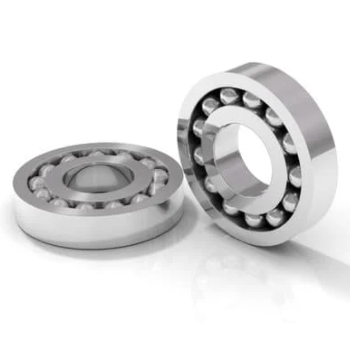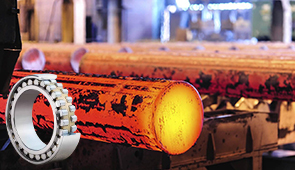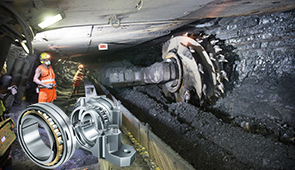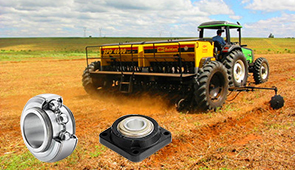The Importance Of Bearing: A Helpful Guide

Bearings are one of the most important, but often overlooked, components in a wide range of machinery. From your car's engine to the hard drive in your computer, and everything in between, bearings play a crucial role in ensuring that these machines can operate smoothly and efficiently. In this blog post, we will explore the importance of bearings and how they help keep our machines running. We will also provide a helpful guide on how to select the right bearing for your specific needs. By the end of this post, you should have a better understanding of bearings and their role in keeping our world moving.
The different types of bearings
There are many different types of bearings, each with their own unique benefits and applications. The most common type of bearing is the ball bearing, which is used in a wide variety of applications. Ball bearings are composed of an inner and outer ring, with balls in between. The balls rotate freely between the rings, allowing for smooth and efficient operation.
Other common types of bearings include roller bearings, sleeve bearings, and thrust bearings. Roller bearings are similar to ball bearings but use cylindrical rollers instead of balls. They can handle higher loads than ball bearings but are not as smooth running. Sleeve bearings consist of a sleeve that fits around the shaft and rotates independently from it. Thrust bearings support axial loads and are found in applications where high thrust loads are present, such as in automotive transmissions.
Each type of bearing has its own advantages and disadvantages, so it is important to select the right type for the application at hand. However, all types of bearings play a vital role in keeping machinery running smoothly and efficiently.
There are a few key things you need to know in order to measure bearing. First, you need to identify the object whose bearing you wish to measure. Second, you need to find the starting point from which you will take your bearing measurement. And third, you need to determine the direction in which you will be measuring the bearing.
Once you have these three things figured out, simply follow these steps:
1. Place the object at the center of your starting point.
2. Use a compass or other similar instrument to find the direction in which the object lies.
3. Measure the angle between the direction in which you are measuring and north (or south if measuring southern hemisphere). This is your bearing measurement!
The importance of bearing
Bearing is a key aspect of rotational motion and helps to ensure smooth and consistent operation of machinery. Without bearings, many machines would suffer from increased vibration and noise levels, as well as reduced efficiency and performance. In some cases, such as with electric motors, the lack of bearings can even lead to catastrophic failure.
There are many different types of bearings available on the market, each designed for specific applications. The most common types of bearings used in industry are ball bearings, roller bearings, and sleeve bearings. Ball bearings are the most widely used type of bearing due to their versatility and high load-bearing capacity. Roller bearings are typically used in heavy-duty applications where high loads are present, such as in conveyor systems. Sleeve bearings are commonly used in lower load applications where space is limited, such as in small electric motors.
Bearing selection is an important part of ensuring proper machine operation. The type of bearing chosen must be able to support the loads present in the application and be able to operate under the desired speed and temperature conditions. Failure to select the proper bearing can result in premature failure and costly downtime.
The importance of bearing is something that is often taken for granted. However, bearing can actually be a very helpful tool in both your personal and professional life. When it comes to personal life, bearing can help you remain calm under pressure and make good decisions. In the professional world, bearing can help you negotiate better deals, keep relationships healthy, and build trust. Here are four reasons why bearing is so important:
1) It Can Help You Remain Calm Under Pressure. When you're under pressure, your body naturally starts to feel tense and stressed. This can lead to problems such as headaches, anxiety, and even panic attacks. One way to prevent this from happening is to learn how to maintain composure under pressure. One way to do this is by practicing self-awareness. This means being aware of your body and what's going on around you. when you're able to do this, you'll be less likely to get stressed out in situations where there's pressure involved.
2) It Can Help You Make Good Decisions. When making decisions in any situation, it's important to weigh all of the options carefully before making a choice. However, when you're under pressure, it can be hard to do this effectively. That's because stress tends to cloud your judgement somewhat. To avoid making bad decisions under pressure, try to take some time for yourself after making a decision in order to reflect on it objectively. Doing so will help ensure that you make the right choice.
Bearing applications are necessary in a wide variety of industries and machines. They are used to keep shafts from binding, to allow for efficient movement, and to limit wear and tear on components. There are many different types of bearings, each with their own advantages and disadvantages. The most common bearings are roller bearings, ball bearings, and sleeve bearings.
Roller bearings are the most common type of bearing. They consist of two circular metal rings, called races, that rotate around a cylindrical roller. Roller bearings can support heavier loads than other types of bearings, but they are also more likely to experience wear and tear.
Ball bearings are the second most common type of bearing. They consist of a series of small metal balls that rotate between two concentric circles. Ball bearings can handle lighter loads than roller bearings, but they are not as durable.
Sleeve bearings are the least common type of bearing. They consist of a metal sleeve that surrounds a shaft. Sleeve bearings can handle very light loads, but they are not very durable.
Conclusion
As you can see, there are many reasons why bearing is important. By understanding the bearing of an object, you can better predict its behavior and how it will react to external forces. This knowledge can be used in a variety of settings, from engineering to construction to everyday life. The next time you encounter an object, take a moment to think about its bearing and what that means for its stability and strength.
Bearing is an incredibly important part of parenting. If you are able to bear your child's weight, it will help them develop a healthy relationship with their body and learn how to take care of themselves. Bearing also allows parents to show their children that they have the strength to overcome challenges and that they can be counted on. When children feel supported in this way, they are more likely to grow up strong and confident individuals.

















